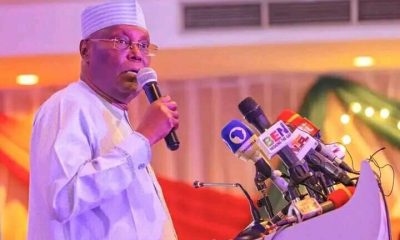

News
Nowhere to Belong: The Plight of Nigerian Northern Christians in a Nation Divided by Ethnic and Religious Fault Lines
Nowhere to Belong: The Plight of Nigerian Northern Christians in a Nation Divided by Ethnic and Religious Fault Lines
By Chrispodiah Emmanuel
Nigerian Northern Christians find themselves in a precarious position—alienated both in the South, where ethnic profiling frames all Northerners as a singular entity of Hausa-Fulani Muslims, and in the North, where religious identity overshadows ethnic bonds, making them vulnerable to religious extremism. This dual marginalization leaves them without a true sense of home or security, forcing them to navigate a dangerous landscape where they are often victims of violent reprisals and communal distrust.
In Southern Nigeria, where ethnicity plays a dominant role in social and political identity, Northerners are often perceived as a monolith. The widespread profiling of Hausa-Fulani as terrorists, bandits, and kidnappers has led to indiscriminate attacks against all Northerners, regardless of their ethnic or religious differences. This was evident in the tragic lynching of 16 Northern travelers in Edo State, accused of being kidnappers. The generalization that all Northerners share the same ethnicity and faith makes it easy for Christians and Muslims alike from the North to fall victim to southern mob justice whenever tensions flare.
Conversely, in the North, religious identity trumps ethnic unity. While Southern Christians might assume that all Northerners—Christian or Muslim—are the same, Northern Christians experience firsthand the divisions within the region. The same anger that unites Northern Muslims and Christians against external threats in the South quickly dissipates when internal religious conflicts arise. Extremist factions among Northern Muslims view their Christian counterparts with suspicion, often targeting them in religious violence that erupts over minor provocations.
For example, the lynching of 16 Northerners in Edo State was a tragic and deeply unsettling moment for the North. Regardless of religious affiliation, many Northerners saw it as another instance of ethnic profiling, where an entire region’s people were painted with the broad brush of criminality. The gruesome nature of the killings ignited widespread grief, outrage, and calls for justice. However, the reactions that followed revealed the deep-seated fractures within the North itself.
Instead of focusing their anger on the actual perpetrators in Edo or demanding accountability from the state, some extremist elements within the North began directing their rage at Northern Christians. The reasoning behind this misplaced retaliation is as troubling as it is revealing: these extremists, who often subscribe to rigid sectarian ideologies, view Northern Christians not as fellow Northerners but as extensions of the Southern Christian majority. In their eyes, any attack by a predominantly Christian southern community becomes a justification to vent their frustration on the most vulnerable and accessible targets—their own Christian neighbours.
This pattern is not new. It reflects a disturbing trend where religious identity supersedes regional solidarity in the North. A similar dynamic played out in the aftermath of the murder of Deborah Samuel in Sokoto in 2022. Her killing, sparked by allegations of blasphemy, was not just a spontaneous act of mob violence—it was an eruption of long-simmering religious hostilities. The subsequent riots and destruction that followed were aimed not just at seeking vengeance for perceived religious insult but also at Northern Christians more broadly.
The Edo lynching, though rooted in ethnic profiling rather than religious strife, has inadvertently triggered the same divisive forces. Extremists interpreting the event through a religious lens are now seeking an outlet for their rage, and Northern Christians—who had also mourned the loss of their fellow Northerners—find themselves in the crosshairs. It is almost as if the extremists deliberately ignore the actual perpetrators in Edo, choosing instead to attack those within their reach, those who share their homeland but not their faith.
The irony is painful: in the South, Northern Christians are seen as part of the ‘aboki’ identity, lumped together with those accused of violence and terrorism. In the North, they are not fully embraced because their faith aligns with the Southern majority. This leaves them in a precarious position, constantly at risk of being caught in the crossfire of Nigeria’s ethno-religious tensions.
The question remains: how can Northern Christians carve out a space of belonging in a country where they are neither fully accepted by their regional kin nor by their religious counterparts from the South? Until Nigeria confronts its deep-seated divisions—both ethnic and religious—the plight of Northern Christians will remain a painful testament to the country’s fractured unity.







